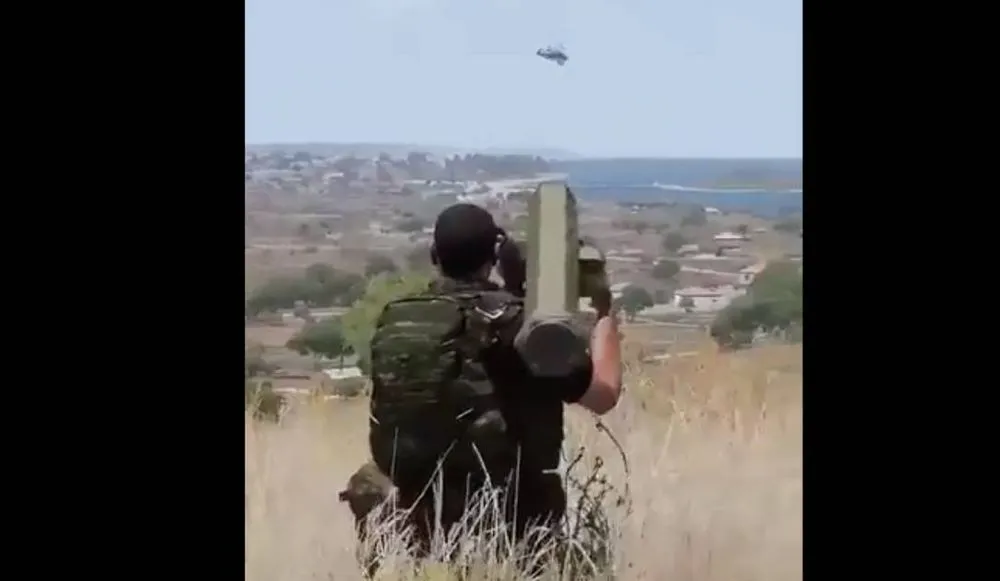Social media platforms foment disinformation about war in Israel
This article was updated at 4:15 p.m. EST with information from European Commissioner Thierry Breton.
Video game clips purporting to be footage of a Hamas fighter shooting down an Israeli helicopter. Phony X accounts spreading fake news through fictitious BBC and Jerusalem Post “journalists.” An Algerian fireworks celebration described as Israeli strikes.
These are just a few examples of the disinformation swirling around the conflict between Hamas and Israel, much of which has been enabled by X, formerly known as Twitter, and by platforms like Meta and Telegram.
The platforms have also been used to terrorize. In one instance, a girl found out that a militant had killed her grandmother after he broadcast it on a Facebook livestream. Meta did not immediately reply to a request for comment.
X owner Elon Musk promoted two particularly virulent accounts spreading disinformation in a post that was viewed 11 million times before Musk deleted the tweet a few hours later.
One of those accounts, @sentdefender, was described by Digital Forensic Research Lab (DFR) expert Emerson Brooking as both “absolutely poisonous” and often retweeted “uncritically.”
Read More: Hacktivists take sides in Israel-Palestinian war
X removed some of the most blatantly fake tweets, often hours after they were posted, but purveyors of disinformation like @sentdefender still operate freely.
A spokesperson for X replied to a request for comment by saying to “check back later.”
The platform announced changes to its public interest policy over the weekend, according to a post on its safety channel. The post said X has seen an increase in “daily active users” based in the conflict area in the past few days and that more than 50 million posts worldwide have discussed the attack.
“We’re laser focused and dedicated to protecting the conversation on X and enforcing our rules as we continue to assess the situation on the platform,” they said.
The post said X will remove newly created Hamas-affiliated accounts. It also said it is coordinating with industry peers and the Global Internet Forum to Counter Terrorism (GIFCT) “to try and prevent terrorist content from being distributed online.”
X said it is “proactively monitoring” for anti-semitic accounts and has “actioned” tens of thousands of posts sharing graphic media and violent and hateful speech.
On Tuesday, European Commissioner Thierry Breton sent a letter to Musk, cautioning that X is spreading “illegal content and disinformation.” EU's Digital Services Act (DSA) mandates that large online platforms such as X remove illegal content and take steps to quickly address how they impact the public.
"Given the urgency, I also expect you to be in contact with the relevant law enforcement authorities and Europol, and ensure that you respond promptly to their requests," Breton wrote. He advised Musk that he would be following up on matters related to X's compliance with DSA.
"I urge you to ensure a prompt, accurate and complete response to this request within the next 24 hours," Breton said.
The difficulty of rooting out disinformation is made more difficult by the growing trend of using video game and recycled news footage to promote falsehoods about the conflict, said Dina Sadek, a Middle East research fellow with DFR. Telegram has been a major vehicle for disinformation, she added, likely because it doesn’t restrict how often users can post and because content is sent as a text message.
“The second that you think something happened you can give them a boost and give them pictures from the incident,” she told The Record. “There's just the speed of how things happen when on messaging applications and some of those have large numbers of subscribers.”
Sadek said it is too soon to detect patterns in the disinformation being disseminated — both in terms of the amount and which side’s supporters are most active — but she said she has seen it emanate from all sides of the conflict.
Stanford disinformation scholar Herb Lin told Recorded Future News that he predicts the propaganda war will intensify significantly in the coming weeks, citing Russia’s likely support to Hamas due to its friendly relationship with Iran.
“They have a quick reaction disinformation force,” he said. “They have the ability to react promptly to this sort of stuff and the first people to get on the air tend to dominate the messages for a while.”
Suzanne Smalley
is a reporter covering digital privacy, surveillance technologies and cybersecurity policy for The Record. She was previously a cybersecurity reporter at CyberScoop. Earlier in her career Suzanne covered the Boston Police Department for the Boston Globe and two presidential campaign cycles for Newsweek. She lives in Washington with her husband and three children.



